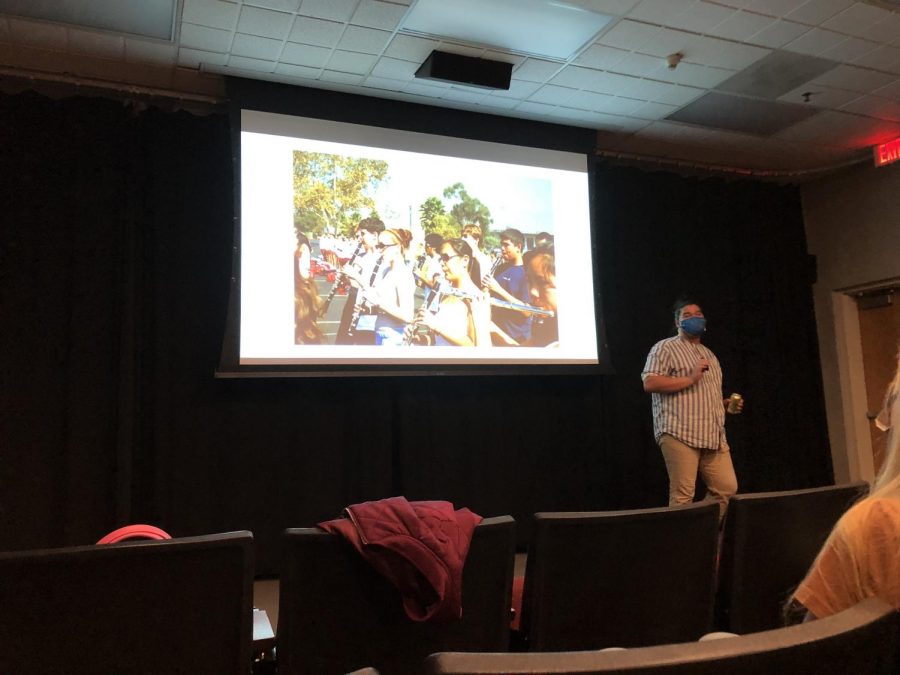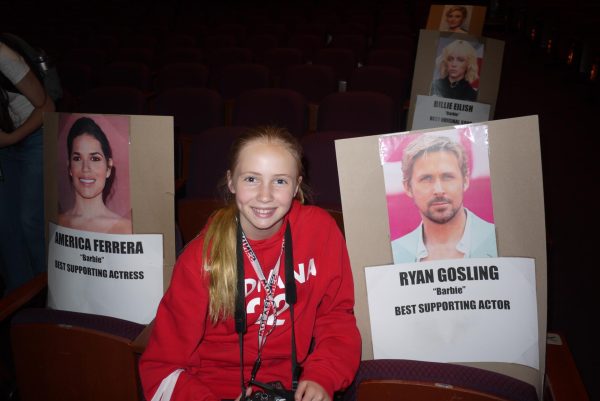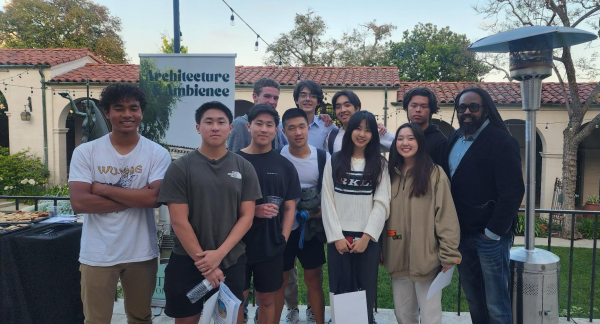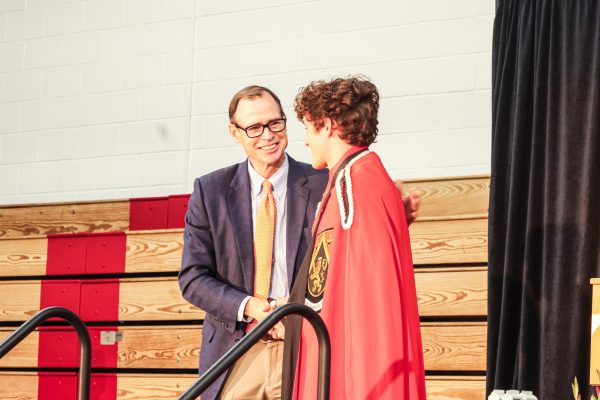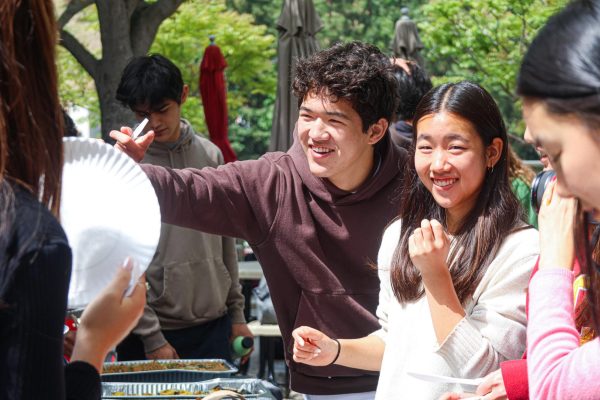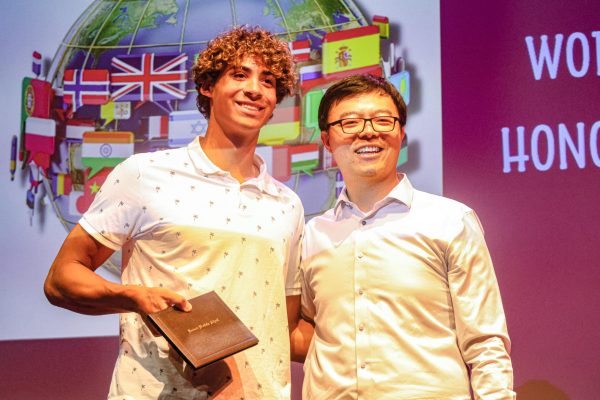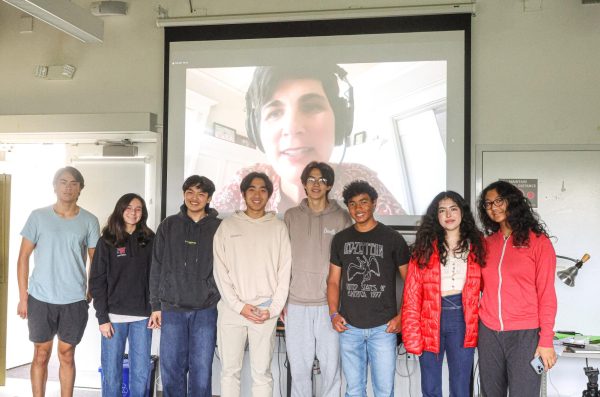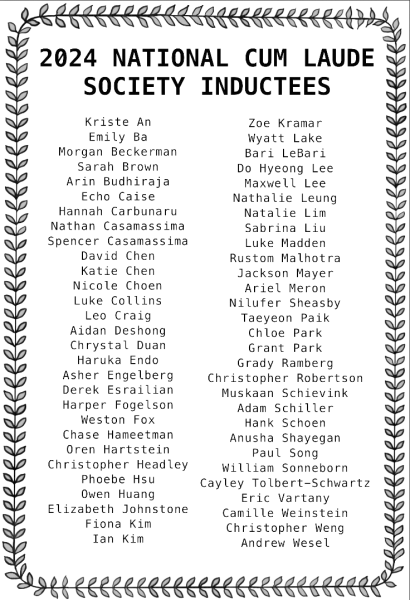Environmental Club hosts FoLAR executive
Dennis Masaba displays a photo of young people playing music during their presentation in Ahmanson Lecture Hall.
December 3, 2021
The Environmental Club and interested students gathered in the Ahmanson Lecture Hall Monday during Community Flex Time to listen to Dennis Mabasa from Friends of the Los Angeles River (FoLAR) present about environmental careers.
Mabasa provided an in-depth description of the path to their environmental career and their journey from being an environmental science major to working for FoLAR. Following a talk and Q&A with Mabasa, students were presented with the opportunity to view the River Rover, a mobile interactive exhibit curated by FoLAR, on the track.
Leo Craig ’24 said he was inspired by the story of the speaker and will pursue environmental paths hereafter.
“I was interested already in environmental careers,” Craig said.”Now that I have heard [Mabasa] talk about a lot of the different ways that people can help [the environment], I’ll take classes in the future and think about more stuff that can help with that in the future.”
Craig said that he was intrigued by environmental careers, but did not have a firm understanding of what they required. He said the meeting helped him realize that there are many options within the field, like political positions and art.
“I originally thought that environmental careers would be cool, but I didn’t know what they were exactly,” Craig said. “They talked about how many different environmental careers there are and how many ways there are to help. It was good to hear about that and made me think about what I could do as a career.”
Environmental Club Co-Leader Maya Mathur ’22 said the speaker introduced her to different kinds of environmental professions such as student engagement.
“I think I definitely learned more about the breadth of environmental careers and that they are not necessarily just science-focused,” Mathur said. “They can be education, community involvement, and stuff like that.”
Mathur said the Mabasa’s path to where they are today and former jobs helped her realize that there are alternatives aside from what is oftentimes viewed as the standard in the pursuit of an environmental career.
“I already knew I was interested in an environmental career, but I think [the presentation] made me realize that they are more accessible,” Mathur said. “It is possible to have an environmental career and not necessarily major in environmental science in college.”
Visual Arts Teacher Reb Limerick said the presentation provoked thinking about ways to affect the environment in a positive way within the school.
“There was a quote on one of [Masaba’s] slides that said ‘every job can be an environmental job’,” Limerick said. “I was reflecting on ways in which I can be more of an advocate for the environment within my role as a teacher and staff member at Harvard-Westlake.”































